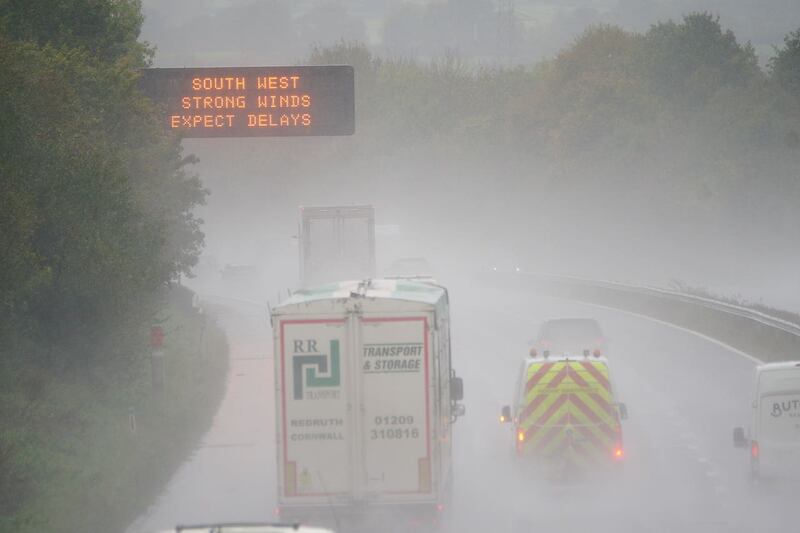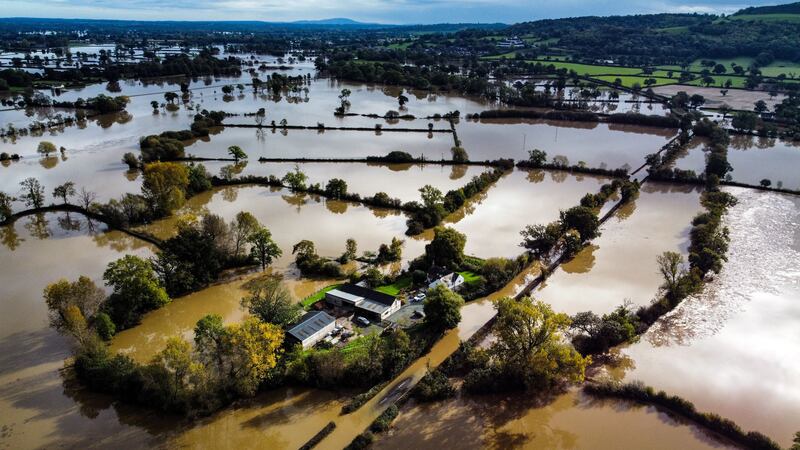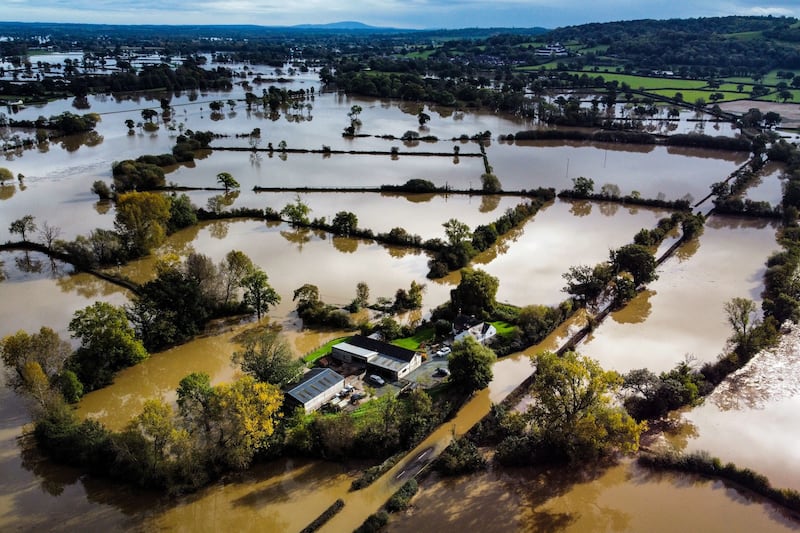Farmers and rural communities are “unfairly shouldering the burden” of flooding because of “years of poor management” from the Environment Agency, the rural landowners’ body has said.
Storm Ciaran is the second storm in two weeks to cause flooding across the UK, with the Met Office having issued yellow warnings for rain stretching throughout the south of England, Wales, north-east England and Scotland.
There are also 77 flood warnings in place from the Environment Agency showing a risk to properties, many of which are along the south coast.
The Country Land and Business Association (CLA) wants the Government to do more to support farmers and landowners and said their fields are being sacrificed to save houses and villages downstream.
Regional director Tim Bamford said: “Flooding can have a massive impact on farming and the countryside, with crops damaged and rural communities often cut off.
“Years of poor management of watercourses and flood defences by the Environment Agency, often caused by lack of resources, mean farmers are still unfairly shouldering the burden of flooding devastation.
“Landowners don’t receive compensation when the Environment Agency effectively floods their fields to protect downstream houses and villages, despite the harm to their crops and livelihoods.
“And when farmers do attempt to implement flood prevention techniques, they face lengthy authorisation delays and costs, creating a lose-lose situation.

“Farmers want to provide solutions to the climate crisis. But until the Government steps in to tackle planning delays and offer full and proper compensation to those storing floodwater, farmers will continue paying the price for problems they didn’t create.”
Worldwide, agriculture is a significant source of the greenhouse gases that are warming the atmosphere – around a fifth of the global total – and it is the largest contributing sector after energy.
As the Earth’s temperature rises, the frequency of storms and torrential downpours is increasing in the UK as a warmer atmosphere can hold more moisture, allowing a larger amount to build up in clouds.
Half of agriculture’s contribution to climate change comes from on-farm emissions of methane and nitrous oxide, with the other half coming from the destruction of forests and other land changes that would otherwise have absorbed carbon dioxide from the atmosphere, the Organisation for Economic Co-operation and Development (OECD) has said.
The CLA’s call for help follows an open letter from the National Farmers’ Union after Storm Babet, saying the Government should ensure that farmers are adequately paid in compensation for when their fields are flooded.

They want changes to the flood defence grant so that “rural communities are not disadvantaged by the nature of smaller populations in comparison to urban communities”.
Wildlife experts and environmental groups have said that the impacts of flooding could be reduced if the UK was to restore its wetlands and woodlands, which slow the flow of water across the landscape.
Around 90% of the wetland habitats in England alone have been destroyed in the last 100 years, mainly through unsustainable farming, development and abstraction, according to the Wildlife Trusts.
The Department for Environment, Food and Rural Affairs has been contacted for comment.



